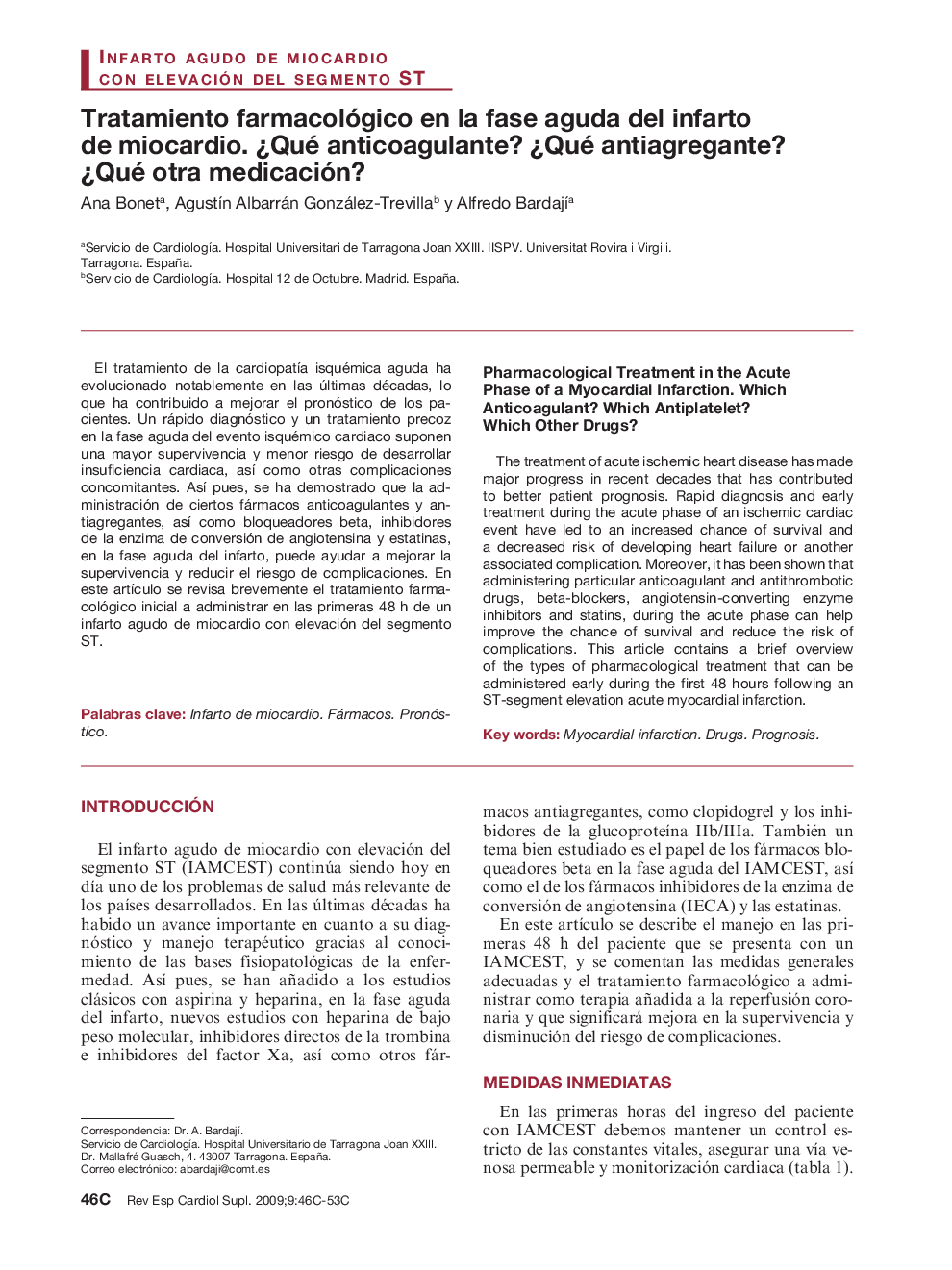| Article ID | Journal | Published Year | Pages | File Type |
|---|---|---|---|---|
| 3019610 | Revista Española de Cardiología Suplementos | 2009 | 8 Pages |
El tratamiento de la cardiopatía isquémica aguda ha evolucionado notablemente en las últimas décadas, lo que ha contribuido a mejorar el pronóstico de los pacientes. Un rápido diagnóstico y un tratamiento precoz en la fase aguda del evento isquémico cardiaco suponen una mayor supervivencia y menor riesgo de desarrollar insuficiencia cardiaca, así como otras complicaciones concomitantes. Así pues, se ha demostrado que la administración de ciertos fármacos anticoagulantes y antiagregantes, así como bloqueadores beta, inhibidores de la enzima de conversión de angiotensina y estatinas, en la fase aguda del infarto, puede ayudar a mejorar la supervivencia y reducir el riesgo de complicaciones. En este artículo se revisa brevemente el tratamiento farmacológico inicial a administrar en las primeras 48 h de un infarto agudo de miocardio con elevación del segmento ST.
The treatment of acute ischemic heart disease has made major progress in recent decades that has contributed to better patient prognosis. Rapid diagnosis and early treatment during the acute phase of an ischemic cardiac event have led to an increased chance of survival and a decreased risk of developing heart failure or another associated complication. Moreover, it has been shown that administering particular anticoagulant and antithrombotic drugs, beta-blockers, angiotensin-converting enzyme inhibitors and statins, during the acute phase can help improve the chance of survival and reduce the risk of complications. This article contains a brief overview of the types of pharmacological treatment that can be administered early during the first 48 hours following an ST-segment elevation acute myocardial infarction.
